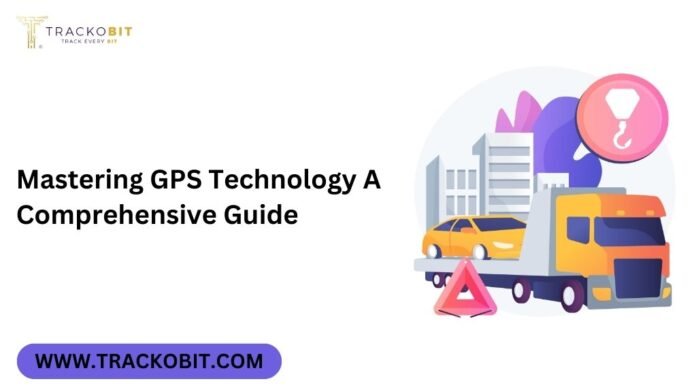GPS technology has become an indispensable part of our daily lives, revolutionizing the way we navigate the world around us. As a leading authority on the subject, we aim to provide you with a comprehensive guide that not only demystifies the intricacies of GPS Tracking but also equips you with the knowledge needed to harness its full potential.
Understanding GPS Unveiling the Technology
How GPS Works
Global Positioning System (GPS) is a satellite-based navigation system that allows precise location tracking anywhere on Earth. Comprising a network of orbiting satellites, GPS receivers, and ground control stations, this technology operates by triangulating signals from multiple satellites to determine an accurate position.
Evolution of GPS Technology
Over the years, GPS tracker technology has undergone remarkable advancements. From its military origins to widespread civilian use, the continuous enhancement of accuracy, reliability, and accessibility has made GPS an integral part of our daily routines.
Applications of GPS in Everyday Life
Navigation and Mapping
One of the primary uses of GPS is in navigation and mapping. Whether you’re driving, hiking, or exploring a new city, GPS provides real-time location data and turn-by-turn directions, ensuring you reach your destination efficiently.
Fitness and Health Tracking
GPS technology has seamlessly integrated into fitness devices, enabling precise tracking of outdoor activities. From running and cycling to hiking, GPS-equipped devices offer accurate data on distance covered, elevation, and route details.
Location-Based Services
The proliferation of smartphones has given rise to a multitude of location-based services. From finding nearby restaurants to sharing your location with friends, GPS plays a pivotal role in enhancing the functionality of various mobile applications.
Choosing the Right GPS Device
Navigating the Options
Selecting the right GPS device depends on your specific needs. For automotive navigation, dedicated GPS units with large screens and voice guidance are ideal. Meanwhile, outdoor enthusiasts may opt for handheld GPS devices with rugged features and topographic mapping capabilities.
Integrating GPS in Smart Devices
With the advent of smart technology, GPS is now integrated into a myriad of devices, including smartphones, smartwatches, and fitness trackers. These devices leverage GPS for location-based services, activity tracking, and even geotagging photos.
Tips for Optimizing GPS Performance
Ensure Line-of-Sight
To maximize GPS accuracy, ensure a clear line-of-sight to the sky. Tall buildings, dense foliage, and other obstructions can hinder satellite signals, affecting the precision of your device.
Regular Software Updates
Keep your GPS device’s software up-to-date to benefit from the latest enhancements and improvements. Manufacturers often release updates to address bugs, improve performance, and introduce new features.
Battery Management
Optimize your device’s battery life by adjusting GPS settings when not in use. Many devices offer power-saving modes that disable GPS when it’s not actively needed, extending battery longevity.
The Future of GPS Technology
As technology continues to advance, the future of GPS holds exciting possibilities. Emerging technologies such as augmented reality (AR) and machine learning are poised to enhance the capabilities of GPS, providing users with an even more immersive and intelligent navigation experience.
Conclusion
In conclusion, mastering GPS technology is not only about understanding its technical aspects but also about leveraging it to enhance various aspects of our lives. Whether you’re a tech enthusiast, outdoor adventurer, or simply someone navigating the urban jungle, a solid grasp of GPS technology opens up a world of possibilities.

